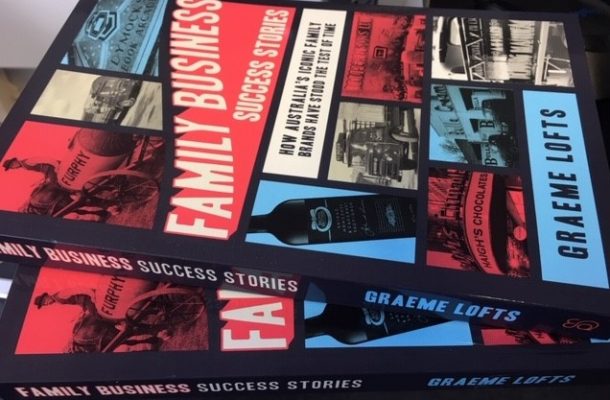Lessons from successful family businesses

Family businesses are vital to our nation’s economy and employ more than 50% of the Australian workforce. Yet only a small proportion of family-owned businesses survive beyond the second generation and just a trickle manage to trade continuously for four or more generations.
There is much to be learnt from this distinguished group of stayers, who have triumphed where others have failed. Their successful navigation through generational transition, economic downturns and natural catastrophes provides lessons for owners and operators of all small to medium-sized business.

In my new book Family Business Success Stories, I describe the journeys of eight families who have led their businesses through more than 100 years and a total of 39 generations. All of them began as small businesses in humble circumstances – a shed, backyard, shop, small farm or even the family kitchen. They have all grown into successful medium to large businesses and together, they employ more than 5,300 people.
The oldest business in the book is the Lionel Samson Sadleirs Group, which began in Fremantle in 1829 as L & W Samson, an import and liquor merchant business that has been forced to reinvent itself several times during its 190 years in order to survive and prosper.
All of the eight businesses, which include Coopers Ltd, Furphys, Dymocks, the Brown Family Wine Group, A.H Beard, Bulla Dairy Foods and Haigh’s Chocolates have faced two World Wars, the Great Depression of the 1930s, several recessions, a technology revolution, the Global Financial Crisis and ongoing worldwide instability.
Some have also overcome setbacks including devastating family tragedies and natural catastrophes such as floods and droughts.
The family stories reveal errors of judgement along the way, including quite a few inappropriate acquisitions and unsuccessful attempts at diversification. On the other hand, there have been substantial financial rewards and an immense sense of satisfaction and achievement.
These successful family businesses learn from the good times, the bad times and the ‘near death’ experiences, where total collapse was imminent. In fact, the eight families share a common belief that with every setback there are opportunities to be found and grasped.
One example of turning a disaster into triumph occurred at Brown Brothers of Milawa, when their vineyard was totally destroyed by a severe frost in 1967. The family’s first response was to purchase a frost-free vineyard Mystic Park, 300 kilometres to the north west in the sun-drenched Murray Valley.
The Mystic Park vineyard has been enormously successful and has since grown to more than four times its original size. The second response was to drill a bore, hoping to find tepid underground water so they could install sprinklers to spray the vines and protect the vineyard against frost. The quality of the water they found was high enough to use for drinking, washing and cleaning equipment in the winery.
The discovery of underground water led to the development of an irrigation system that also negated the effect of droughts. What appeared to have been a devastating setback had resulted in a new sense of certainty for the company and a significant increase in production.
The founders of all eight businesses were entrepreneurs who were not averse to taking risks to develop their businesses. Successive generations have included an assortment of colourful characters, quiet achievers, men and women of faith, energetic agents of change and charismatic entrepreneurs.
Common characteristics of the successful businesses include resilience, perseverance, the ability to adapt to change and a long-term vision. There is no doubt that in family-owned businesses, family values influence business values, which often results in the loyalty, retention and compassionate treatment of employees.
In researching for this book, I came across numerous instances of employees that proudly considered themselves to part of the family that owned the business.
The responses to my question ‘what advice would you give new and emerging family businesses?’ were remarkably similar and could well be applied to all small to medium sized businesses. The most common responses were:
Learn from other family members by talking, reading, subscribe to business blogs and becoming involved with business organisations that provide professional development.
Create a framework of governance that secures the interests of both the family and the business.
Ensure that you have a regularly reviewed succession plan in place that is understood by family members and others in management positions.
Develop a strategic long-term plan for the business.
Appoint and employ strictly on merit rather than membership of the family.
Be willing to admit mistakes or failures and learn from errors of judgement.
Remember that you are an important role model for the next generation.
Create an atmosphere of mutual respect between the family and employees.
Always be on the lookout for opportunities, even during setbacks.
Graeme Lofts taught secondary school science for 25 years and is now a successful writer of textbooks and non-fiction. Heart & Soul: Australia’s First Families of Wine was published by Wiley in 2010 and his latest book, Family Business Success Stories, was released in 2019.






